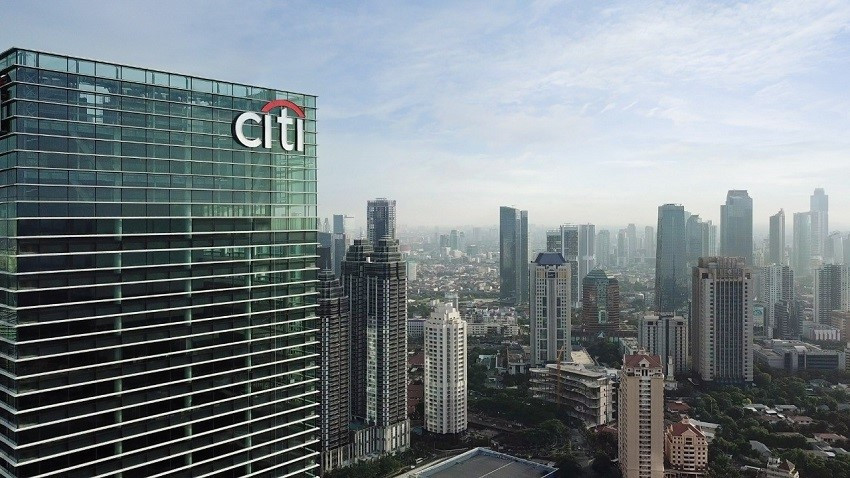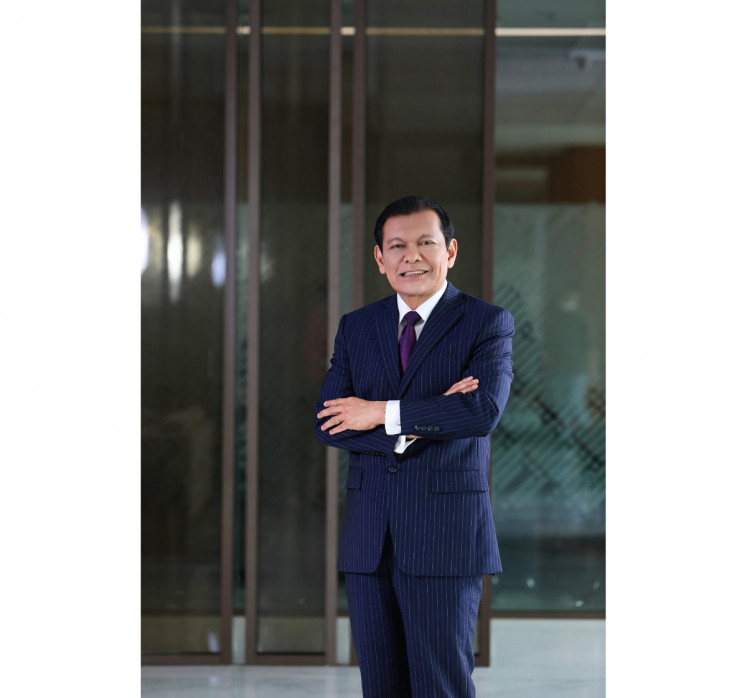Popular Reads
Top Results
Can't find what you're looking for?
View all search resultsPopular Reads
Top Results
Can't find what you're looking for?
View all search resultsCiti Indonesia records Rp 869b net profit in Q3
Change text size
Gift Premium Articles
to Anyone
Citibank NA, Indonesia (Citi Indonesia) posted a net profit of Rp 869 billion (US$60.34 million) during the third quarter of 2021.
While a lower trading income and net interest income meant that total earnings were lower than in the same period last year, Citi Indonesia was able to bounce back from its business performance in the previous quarter.
The bank’s standalone net profit in Q3 reached Rp 408 billion, an increase of Rp 543 billion from the Q2 standalone mark, driven by lower credit provisioning.
The net profit increase can also be attributed to Citi Indonesia’s credit impairment charge, which remained relatively stable compared to the previous year. This was due to an increase in credit impairment in the institutional banking line, originating from a corporate client, and was successfully offset by a decrease in credit impairment in consumer banking.
Citi Indonesia recorded a gross non-performing loan (NPL) of 3.3 percent, an increase from 2.8 percent from 2020 due to the credit quality of one corporate client.
In a statement, Citi Indonesia said it remained comfortable with the quality of the existing loan portfolio as it consistently maintained a prudent risk management approach in managing the impact of the pandemic. In addition, the company continues to ensure the adequacy of provisions, where we maintain low net NPL, which is at 0.9 percent.
Citi Indonesia continues to be highly liquid with a lending to deposit ratio (LDR) of 62.5 percent and well-capitalized with a capital adequacy ratio (CAR) at 26.7 percent, an increase from 26.5 percent in the same period last year.
Batara Sianturi, Citi Indonesia CEO (Courtesy of Citi Indonesia/.)Citi Indonesia CEO Batara Sianturi said the bank was committed to continuing to improve its business performance.
“This is evident through the various strides we have made amid the COVID-19 pandemic. We have made significant progress and innovations both in institutional and consumer banking. Going forward, we will also continue to transform digitally and enhance our digital banking services,” he said.
Citi Indonesia’s banking, capital markets and advisory (BCMA) line recorded an earnings growth of 14 percent during the year-to-Q3 period compared to the same period last year.
The top-tier local corporates and public sector group continued to support major deals and transactions, including corporate actions, syndicated loans and the capital market. Meanwhile, the financial institutions group, which lists financial institutions as clients, also provided positive contributions, particularly from cash management, trade financing/services, foreign exchange, interest rates and custodian businesses.
The global subsidiaries group saw an increase in both earnings and market share in the multinational corporations (MNC) segment amid the challenging market climate. This was achieved through several initiatives, including the Asia-to-Asia initiative that grew by 17 percent during the year-to-Q3 period when compared to the same period last year. The group also recorded a 21 percent credit disbursement growth when compared to the end of 2020.
Citi Indonesia’s commercial bank unit saw its earnings grow by 24 percent during Q3, alongside a credit growth of 14 percent. Taking into account the upward trend in customer activities and behaviors, the unit will continue to focus on providing digital banking services, as well as effective and efficient cash management products and solutions.
In retail banking, Citi Indonesia served as the distribution partner of retail sukuk SR014 and SR015 that are being offered online. The bank also participated in the launch of the FR090, FR091 and FR092 benchmark series of Indonesian government bonds in July to further complement the range of its product offerings.
However, due to the current downward trend of interest rates, Citi Indonesia recommends its customers to diversify their assets, chiefly on products that are able to provide higher yield potential.
As of September, Citi Indonesia has also raised its digital investment transactions to 59 percent, growing by 70 percent compared to the same period last year. Digital investment transactions played an important role in supporting the growth of the wealth management business during the COVID-19 pandemic.
In addition, amid the continuing uncertainty, Citi Indonesia and AIA Group Limited (AIA) have collaborated to launch a line of health protection products that provide strong coverage for customers until the age of 99 years. Citi Indonesia’s wide range of bancassurance offerings also includes products that provide life and long-term financial protection, particularly for retirement and children's education plans.
Batara noted that Citi is pursuing consumer franchise sales with a focus on optimal results for its employees, clients and shareholders.
“Conversations with potential buyers continue in these markets, including in Indonesia, with strong interest from a broad range of bidders. As we proceed with the consumer divestiture process, we remain committed to growing our institutional business in Indonesia which represents an essential part of our global network.”
In regard to the operations of consumer banking, Batara explained that the sale process would not affect the bank’s ongoing commitment to its customers, as well as the products and services offered.
“Our consumer operations, including branches, call centers and officers continue to operate normally.”











